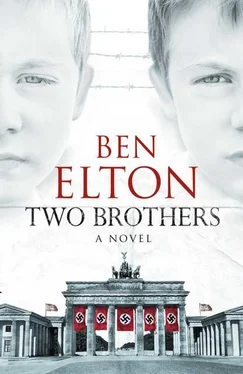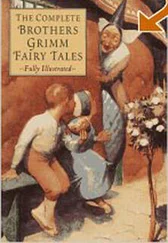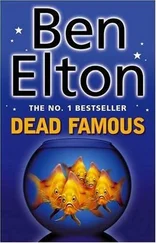Otto thought about that for a moment. Then he remembered something and felt in the breast pocket of his jacket. He pulled out a paper tissue with a lipstick imprint on it. The one Billie had put there on the first morning he had been summoned to MI6. Something to remember her by, she’d said.
‘Yes, actually,’ he said quietly, ‘I think there is a girl.’
‘Ha!’ Dagmar replied, looking at the red lips printed on the tissue. ‘So you did love somebody besides me after all.’
‘I didn’t think I could allow myself to, Dagmar,’ Otto replied. ‘But now I know I can.’
Girl on a Pavement
London and Berlin, 1989 and 2003
IN 1989 OTTO Stengel heard the news of the collapse of the Berlin Wall while listening to BBC Radio 4 in the kitchen of the north London home he shared with his wife Billie.
The last of their four children had long since flown the nest and Billie was rushing off to her job as a fashion buyer at Marks and Spencer. Therefore Otto, who was a semi-retired cabinet maker, had the day to himself. He spent it in his garden workshop, listening to the unfolding saga of the people power revolution taking place in the city of his birth. Sometimes he paused over his saws and his wood planes to sip a little scotch, smoke a Lucky Strike and wonder what it might all mean for the East German official with whom he had last had contact in the Märchenbrunnen, thirty-three years before.
That same morning in Berlin, the retired Stasi officer known as Silke Stengel disappeared, leaving behind the flat she had lived in since the Second World War and no trace of where she’d gone.
Shortly thereafter Dagmar Fischer, a Jewish woman believed to have been dead for nearly half a century, reappeared in West Berlin. Her story of a life spent in the East was vague and confusing but her identity was clear. She had documentary proof taken from Stasi records filed in 1956, and subsequent DNA testing put the matter beyond legal doubt.
Thus established, Dagmar Fischer began a courtroom battle to gain compensation for assets lost under the Nazis and in particular to regain control of her father’s department store on the Kurfürstendamm. This had been largely destroyed during the war and subsequently leased by the West German authorities to various retail chains.
Dagmar Fischer was successful in her efforts and the Fischer department store was restored to its former glory, reopening its doors in 1992. For the remaining eleven years of her life, Miss Fischer arrived in a limousine outside the store every morning shortly before eight thirty, in order personally to open the magnificent front doors of the shop on the exact stroke of the half-hour.
She was in the process of performing this self-appointed task on the morning she died, suffering a heart attack as she stepped out of her car. Falling to her knees on the pavement, she slumped slowly forward until her face was on the stones, her mouth open and her tongue lolling out. A concerned crowd quickly gathered round and a young man stooped down to ask if he could help her.
‘You’re too late,’ Dagmar whispered to the paving stones as the breath of life left her body. ‘Seventy years too late.’
Afterword
Biographical Reflections
THIS STORY IS entirely a work of fiction, but it is inspired in part by a circumstance of my family history.
My father was a Hitler refugee. He was born Ludwig Ehrenberg in Germany into a secular family of Jewish descent. He came to Britain via Czechoslovakia in 1939 with his parents Eva and Victor and his older brother Gottfried. The great kindness of various individuals in Britain ensured the family’s survival, as did the help of a small charity established in 1933 by British academics and scientists. The charity, now called the Council for Assisting Refugee Academics (CARA), still exists today.
Gottfried enlisted in the British Army in 1943, when, like the Stengel brother in my story, he was advised to anglicize his name in case of capture by the Germans. He became Geoffrey Elton and my father followed suit, changing his name to Lewis Elton. My grandparents remained Ehrenbergs until their deaths in London in the seventies.
Gottfried and Ludwig had a cousin, Heinz. Like the brother in my story, Heinz was adopted and, to use the Nazis’ own term, of pure ‘Aryan’ blood. When his parents Paul and Clara Ehrenberg escaped Germany, Heinz elected to stay in order to farm the land his parents had acquired for him.
Heinz was soon drafted into the Wehrmacht and, like the Stengel brother in my story, was part of the army stationed on the Channel coast in 1940 in preparation for Hitler’s planned invasion of Britain. Heinz also served in Italy; after the war, the family discovered that he and Geoffrey had come quite close to each other while fighting there on opposite sides.
Like the fictitious Paulus and Otto, my father and uncle experienced the segregation of school classrooms. They, too, were insulted by Nazi teachers and witnessed the confusion of the so-called Mischling . My father’s best friend was half Jewish and, on being given a choice, bravely elected to sit with the Jews.
In the story, Paulus and Otto’s grandfather had won an Iron Cross in the First World War. My grandfather Victor also served in the Kaiser’s army and won the Iron cross in 1914. He fought in the trenches throughout the war, and my children have the piece of shrapnel that was dug from his leg in 1917. Like the fictitious Taubers, my grandparents loved the country of their birth very much and saw themselves as both Germans and Jews. When the family emigrated to England, my grandfather secretly brought his Iron Cross with him. On discovering this in 1940, my grandmother buried it in the back garden of the lodging house in which they were staying, where it has no doubt long since rusted away.
Like the Stengel boy in my story, my Uncle Geoffrey ended up with the Army Intelligence Corps as an interpreter. Geoffrey achieved the rank of Sergeant and throughout his life retained a deep affection for the British army. Indeed, it was said in the family that the army truly made him an Englishman. In 1989, when Blackadder Goes Forth was broadcast, Uncle Geoffrey was at first most unhappy at what he considered to be an insulting portrayal of the army; he later took the view that the satire was drawn with great respect.
Although my father’s family were more fortunate than some in terms of the number of members who were able to escape the Holocaust, many of course did not. Lisbeth, my grandmother’s beloved sister, for instance, died like the fictitious Frieda, having volunteered to accompany a group of Jewish children being transported east. Lisbeth was shot along with her young charges immediately on arrival in Lithuania in 1941.
An incident which I had hoped to include in my fictional narrative but could eventually find no place for concerned my Uncle Heinz and the death of my great-grandmother. In October 1941, she was still living in her home town of Kassel when the German authorities began a final round-up of Jews there.
Her grandson Heinz very bravely visited the Kassel Gestapo in his army uniform and asked that his adoptive grandmother, who was close to death, be allowed to die in her bed. ‘ Lassen Die mir die alte Judin in Ruhe ,’ was his appeal. ‘Let that old Jewess alone.’ Perhaps his appeal was successful, because Emilie Ehrenberg did die in her bed soon after. She was spared the nightmare of transportation in a cattle truck to a death camp, but not that of having seen the country in which she was born in 1859 descend into insanity and barbarity without parallel.
Like Wolfgang Stengel, my family also had some experience of the pre-Holocaust SA concentration camps of the 1930s. My grandfather’s other brother, Hans, was a Christian pastor, having been converted while he was a student. He was sent to Sachsenhausen Camp, where his good friend Reverend Martin Niemoller, the great anti-Nazi cleric and author of First They Came …, was also an inmate. Hans was eventually released, due largely to the efforts of the Bishop of Chichester.
Читать дальше












